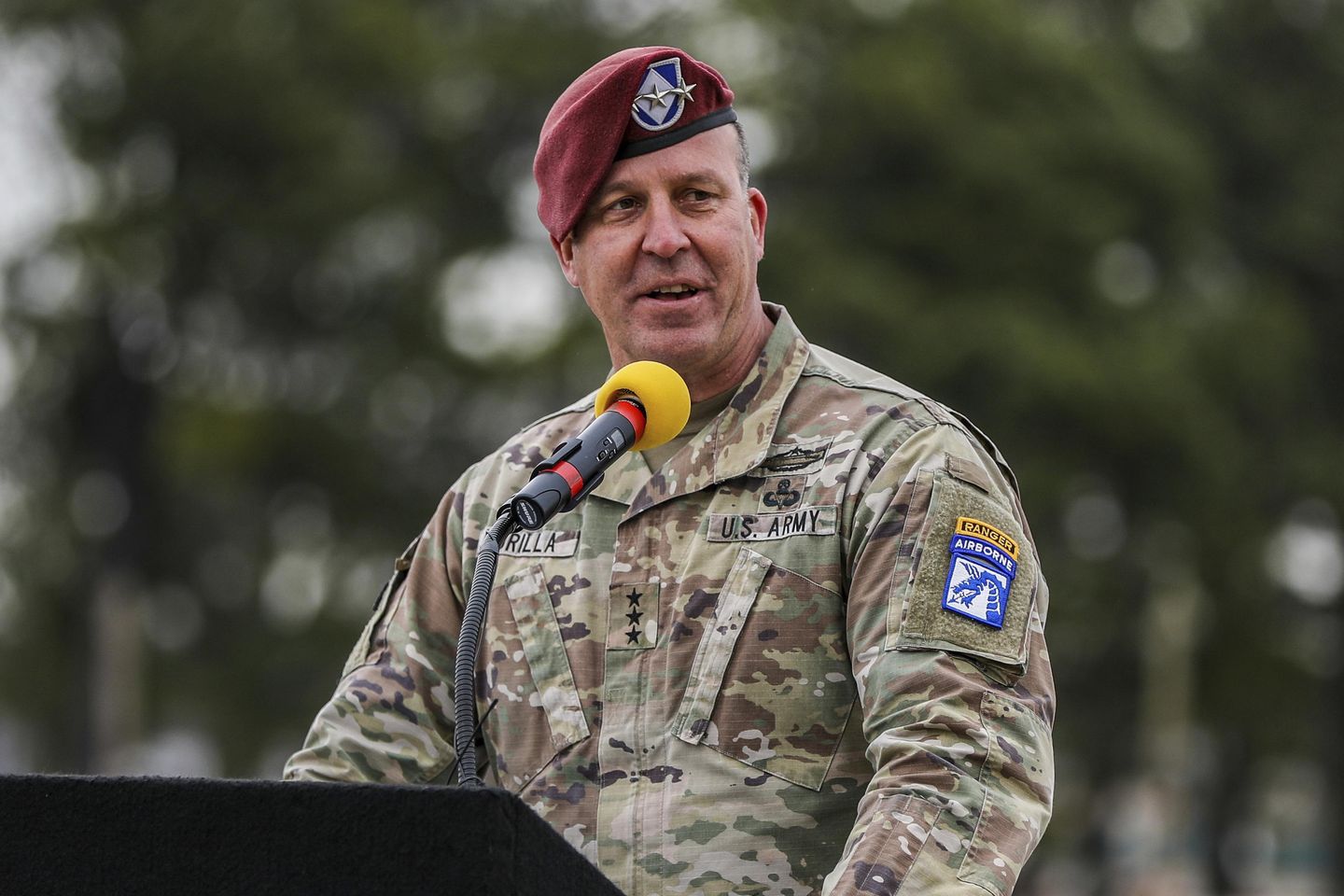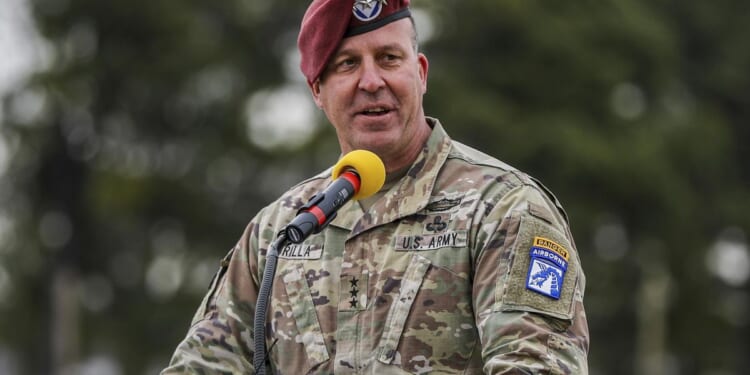
The fallout from the Hamas attack on Israel on Oct. 7, 2023, and Israel’s subsequent offensive into the Gaza Strip has made the once promising strategic landscape of the Middle East once again one of the world’s most dangerous places for the U.S. and its allies, the Pentagon top general in the region told Congress Thursday.
Central Command chief Army Gen. Erik Kurilla made the grim assessment during testimony before the House Armed Services Committee, telling lawmakers that he recently returned from his 27th visit to the Middle East.
In addition to the prospect of a wider war in the Middle East dragging in the U.S. and Iran, the Centcom head said attacks by Yemen’s Iran-backed Houthis on global shipping in the Red Sea will likely continue for some time and that the Islamic State offshoot in Afghanistan is developing capabilities that could soon allow it to target the U.S. and its allies far beyond its Afghanistan base “in as little as six months with little to no warning.”
“Just a year ago, the region was on the verge of improbable, unprecedented and transformative progress,” Gen. Kurilla said. “Today, the [Central Command] region faces its most volatile security situation in the past half-century.”
He said the Oct. 7 attack on Israel by Hamas not only “permanently changed” Israel and the Gaza Strip, but it also created the conditions for U.S. adversaries such as Iran to sow instability throughout the region and beyond. Tehran has exploited what it sees as a once-in-a-generation opportunity to reshape the Middle East to its advantage.
“Iran has worked for decades to encircle the region with its proxies. In the past six months, we have seen every proxy in the Iranian threat network operationalized — in Iraq, Syria, Lebanon, Gaza, the West Bank and Yemen,” Gen. Kurilla said.
Yemen’s Houthi militias in Yemen are equipped with advanced, sophisticated weaponry and are threatening some of the most vital trade in the world. Their attacks on international maritime traffic in the Red Sea are a “direct result” of an Iranian threat that has been incrementally spreading, Gen. Kurilla said.
The U.S. Central Command area of responsibility is the region in the world most likely to spark wider conflict and direct threats to the U.S. homeland, Gen. Kurilla said.
China and Russia have been quick to capitalize on destabilizing trends in the Middle East and have shown no interest in reducing regional tensions, the general said.
“Iran, Russia and China are strengthening their relationship and fostering a chaotic landscape favorable to their exploitation,” Gen. Kurilla said. “Iran continues to sell 90% of its oil to China, funding Tehran’s subversive and malign activities across the region.”
House Armed Services Committee Chairman Mike Rogers, Alabama Republican, said Iran’s hostile actions in the Middle East have become more pronounced in recent years.
Tehran has transferred hundreds of one-way attack drones to Russia for use in its war against neighboring Ukraine and is considering sending the Kremlin ballistic missiles as well, he said. Iran also financed, trained and equipped militia groups in Iraq and elsewhere that have carried out more than 170 attacks on U.S. troops in the Middle East.
The White House, he said, has dragged its feet on effective responses to the challenge.
“The president has responded with airstrikes on terrorist proxies, which have done little to stop them from lobbing missiles at ships in the Red Sea. He’s threatened more sanctions on Iran, which have yet to make a dent in the ayatollah’s war machine,” Mr. Rogers said. “This administration needs to articulate and employ a real strategy to counter Iran and protect U.S. interests in the region.”
The Houthi rebels claim their violent campaign against merchant ships and naval vessels in the Red Sea has been in support of Palestinians in the Gaza Strip. Gen. Kurilla said he finds their “righteous indignation” laughable.
“They say it’s about Gaza, but the Houthis have not provided one loaf of bread to Gaza,” he said. “What they’ve actually done is delay it and make it go all the way around the Cape of Good Hope, increasing the cost.”
Washington state Rep. Adam Smith, the panel’s ranking Democrat, said he fully supports Israel’s right to defend itself in the wake of the Oct. 7 attack but said Israel’s military must be mindful of civilian casualties as it presses its Gaza campaign into the crowded city of Rafah.
“We must recognize that the humanitarian crisis worsens by the day. I strongly support continued efforts by the [Biden] administration to reach a cease-fire agreement and, subsequently, a path for peace that supports the future of the Palestinian people,” Mr. Smith said.
Gen. Kurilla said he had not seen the IDF’s plan for protecting civilians as it moves into Rafah, but noted it could take several weeks before civilians in the city are moved out for their safety. Biden administration officials now say they see no way to avoid massive civilian losses if Israel conducts a full-scale assault on the city.
Israel Defense Forces officials have provided their U.S. counterparts with verbal and written assurances that they will follow the law of armed conflict, Gen. Kurilla said.

